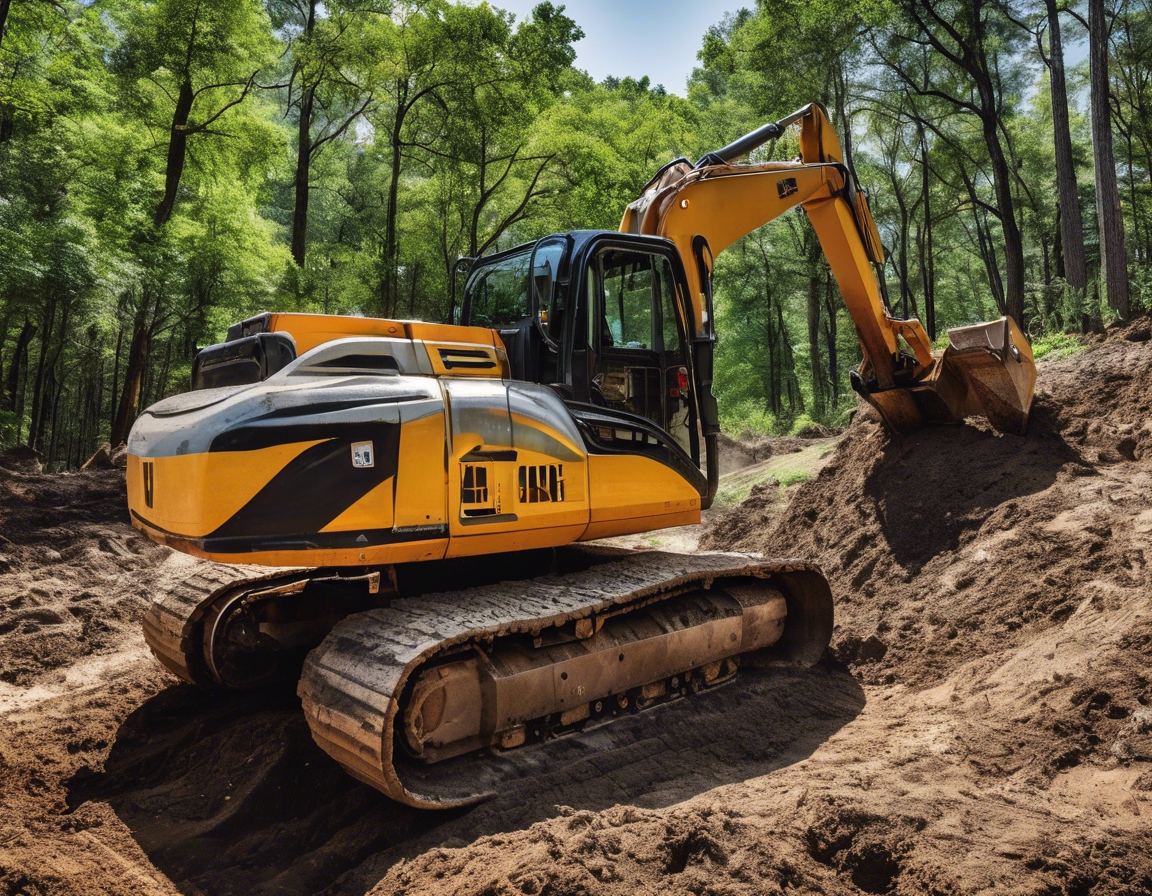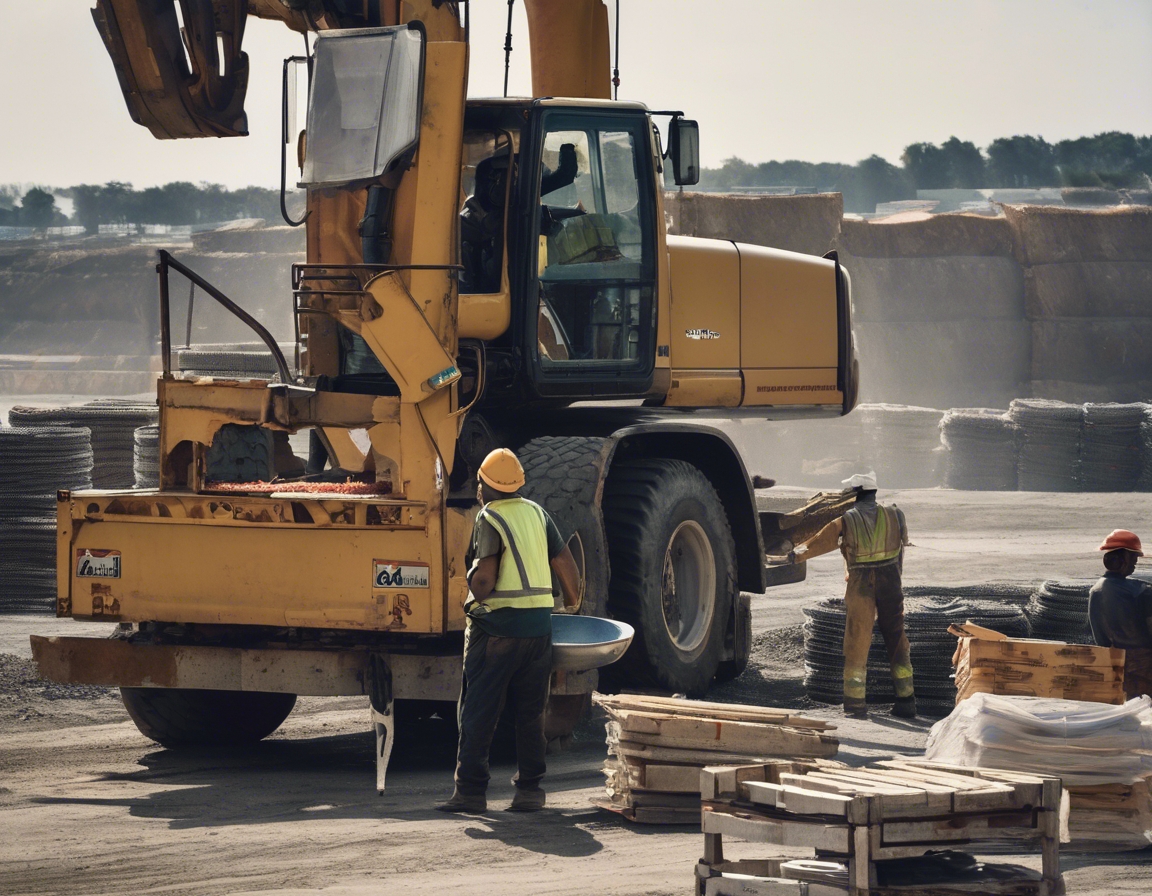The importance of sustainable earthwork practices
In the realm of construction and infrastructure development, earthwork is a fundamental component. It involves the movement and processing of large quantities of soil or unformed rock to create a suitable foundation for construction projects. However, traditional earthwork practices have often been criticized for their environmental impact. As the world increasingly prioritizes sustainability, the construction industry is under pressure to adopt more sustainable earthwork practices. This shift not only helps in preserving the environment but also aligns with the growing demand for eco-friendly construction solutions.
The Environmental Impact of Traditional Earthwork
Traditional earthwork practices can have significant environmental repercussions. These include soil erosion, loss of biodiversity, and increased carbon emissions due to the heavy machinery used. Additionally, improper disposal of excavated materials can lead to land degradation and water pollution. Such practices contribute to the depletion of natural resources and exacerbate climate change, making it imperative for the industry to seek sustainable alternatives.
Benefits of Sustainable Earthwork Practices
Sustainable earthwork practices prioritize the conservation of natural resources and the reduction of environmental impact. By using eco-friendly materials and methods, these practices help in minimizing soil erosion, preserving biodiversity, and reducing carbon footprints. This not only protects the environment but also ensures the longevity of construction projects.
While the initial investment in sustainable practices may be higher, the long-term economic benefits are substantial. Sustainable earthwork can lead to reduced operational costs through efficient resource management and energy savings. Additionally, projects that adhere to sustainable practices often qualify for government incentives and tax benefits, further enhancing their economic viability.
Adopting sustainable earthwork practices also has social advantages. It promotes healthier communities by reducing pollution and improving air and water quality. Moreover, it fosters a positive public image for companies, as consumers and stakeholders increasingly favor businesses that demonstrate environmental responsibility.
Key Strategies for Implementing Sustainable Earthwork
One of the primary strategies for sustainable earthwork is the use of eco-friendly materials. This includes recycled aggregates, biodegradable erosion control products, and non-toxic soil stabilizers. These materials not only reduce environmental impact but also enhance the durability and performance of construction projects.
Efficient resource management is crucial for sustainable earthwork. This involves optimizing the use of materials, water, and energy throughout the construction process. Techniques such as precision grading and soil compaction can significantly reduce waste and improve efficiency.
Advanced technologies play a pivotal role in sustainable earthwork. Innovations such as GPS-guided machinery, drones for site surveys, and 3D modeling software enhance precision and reduce resource consumption. These technologies not only improve project outcomes but also minimize environmental impact.
Compliance with environmental regulations and obtaining relevant certifications are essential for sustainable earthwork. These measures ensure that projects meet legal standards and demonstrate a commitment to sustainability. Certifications such as LEED (Leadership in Energy and Environmental Design) can also enhance a company's reputation and marketability.
Challenges in Adopting Sustainable Earthwork Practices
One of the primary challenges in adopting sustainable earthwork practices is the perceived cost implications. While sustainable methods may require higher upfront investment, the long-term savings and benefits often outweigh these initial costs. Educating stakeholders about the economic advantages of sustainability is crucial for overcoming this barrier.
The adoption of advanced technologies can be hindered by technological barriers, such as the lack of expertise or access to cutting-edge tools. Investing in training and development is essential to equip the workforce with the necessary skills to implement sustainable practices effectively.
Resistance to change is a common challenge in any industry. In the construction sector, traditional practices are deeply ingrained, and shifting to sustainable methods requires a cultural shift. Encouraging open communication and demonstrating the benefits of sustainability can help in overcoming resistance and fostering a more sustainable mindset.
The Role of Stakeholders in Promoting Sustainability
Stakeholders play a crucial role in promoting sustainable earthwork practices. Construction companies, municipal governments, and private landowners must collaborate to drive the adoption of eco-friendly methods. By prioritizing sustainability in project planning and execution, stakeholders can contribute to a more sustainable future for the construction industry and the planet.






Comments (0)